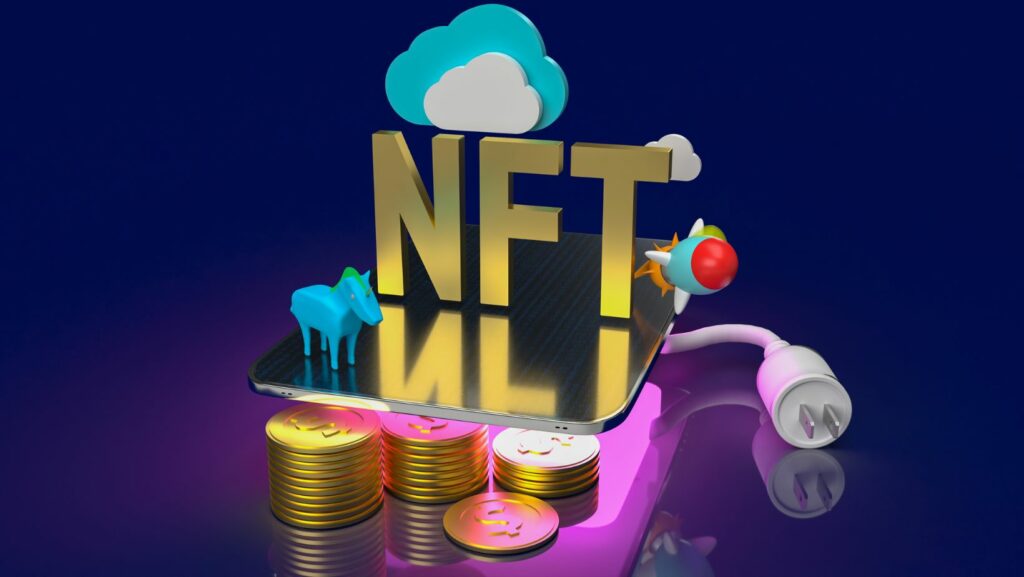In the fast-evolving landscape of gaming, Non-Fungible Tokens (NFTs) have emerged as a game-changer, revolutionizing how players interact with in-game assets. NFTs, unique digital tokens stored on a blockchain, are reshaping the gaming industry by offering players true ownership of their virtual items. This intersection of blockchain technology and gaming has sparked a wave of innovation, creating new opportunities for gamers, developers, and investors alike.
With NFT gaming news constantly making headlines, staying informed about the latest trends and developments is crucial for anyone passionate about the future of gaming. From rare in-game items selling for astronomical prices to collaborations between top gaming studios and blockchain platforms, the NFT gaming space is brimming with excitement and potential. Join us as we delve into the dynamic world of NFT gaming news, where the possibilities are as infinite as the digital realms they inhabit.
Nft Gaming News
Understanding NFTs in the Gaming World
 NFTs, or Non-Fungible Tokens, have revolutionized the gaming industry by introducing a new level of ownership and authenticity to in-game assets. These unique digital tokens are stored on blockchain technology, ensuring transparency and security in transactions. Gamers can truly own their in-game items, trade them with others, and even sell them for real money, creating a thriving virtual economy within games.
NFTs, or Non-Fungible Tokens, have revolutionized the gaming industry by introducing a new level of ownership and authenticity to in-game assets. These unique digital tokens are stored on blockchain technology, ensuring transparency and security in transactions. Gamers can truly own their in-game items, trade them with others, and even sell them for real money, creating a thriving virtual economy within games.
Key Players and Pioneering Games
In the evolving landscape of NFT gaming, several key players have emerged to drive innovation and accessibility. Companies like Axie Infinity, The Sandbox, and Decentraland have pioneered the integration of NFTs into gameplay, offering players the chance to earn real rewards for their in-game achievements. Games such as CryptoKitties and NBA Top Shot have demonstrated the immense potential of NFTs in creating unique, collectible experiences that resonate with players and collectors alike.
Current Trends in NFT Gaming
Virtual Real Estate and NFTs
Virtual real estate has emerged as a significant trend in the NFT gaming ecosystem, offering players the opportunity to own digital land, buildings, and spaces within virtual worlds. This concept has gained traction as a lucrative investment avenue, with players purchasing virtual real estate using NFTs to build, develop, and monetize their virtual assets. Gaming platforms like The Sandbox and Decentraland have pioneered this trend, allowing users to create personalized experiences on their virtual properties. The intersection of NFTs and virtual real estate presents a unique opportunity for gamers to own virtual spaces and capitalize on the growing demand for digital assets in the metaverse.
Play-to-Earn Model Evolution
The evolution of the play-to-earn model represents a transformative trend in the NFT gaming space, shifting the dynamics of player engagement and rewards within games. This model enables gamers to earn real value through their in-game activities, such as completing quests, battling opponents, and participating in virtual economies. By leveraging NFTs, players can secure ownership of in-game assets and monetize their gaming skills by trading, selling, or renting virtual items.
Challenges Facing NFT Gaming
Scalability and Environmental Concerns
 NFT gaming encounters challenges related to scalability and environmental impact. As the popularity of NFTs in gaming grows, the blockchain networks supporting them face scalability issues due to high transaction volumes. It’s essential to address these scalability concerns to ensure seamless gameplay experiences without network congestion or delays. Additionally, the environmental impact of NFTs, particularly in energy consumption for minting and trading, has raised concerns. Implementing eco-friendly solutions or transitioning to more sustainable blockchain technologies is crucial in mitigating these environmental challenges in NFT gaming.
NFT gaming encounters challenges related to scalability and environmental impact. As the popularity of NFTs in gaming grows, the blockchain networks supporting them face scalability issues due to high transaction volumes. It’s essential to address these scalability concerns to ensure seamless gameplay experiences without network congestion or delays. Additionally, the environmental impact of NFTs, particularly in energy consumption for minting and trading, has raised concerns. Implementing eco-friendly solutions or transitioning to more sustainable blockchain technologies is crucial in mitigating these environmental challenges in NFT gaming.
Legality and Regulatory Hurdles
Navigating the legal and regulatory landscape poses significant challenges for NFT gaming. The decentralized nature of blockchain technology and NFT transactions complicates jurisdictional oversight and enforcement. Legal issues surrounding intellectual property rights, licensing, taxation, and fraud prevention need to be addressed to ensure a secure and compliant environment for NFT gaming. Regulatory bodies are actively monitoring the space and may introduce frameworks to govern NFTs, requiring industry stakeholders to adapt to evolving legal requirements and compliance standards to foster trust and legitimacy in the NFT gaming sector.

